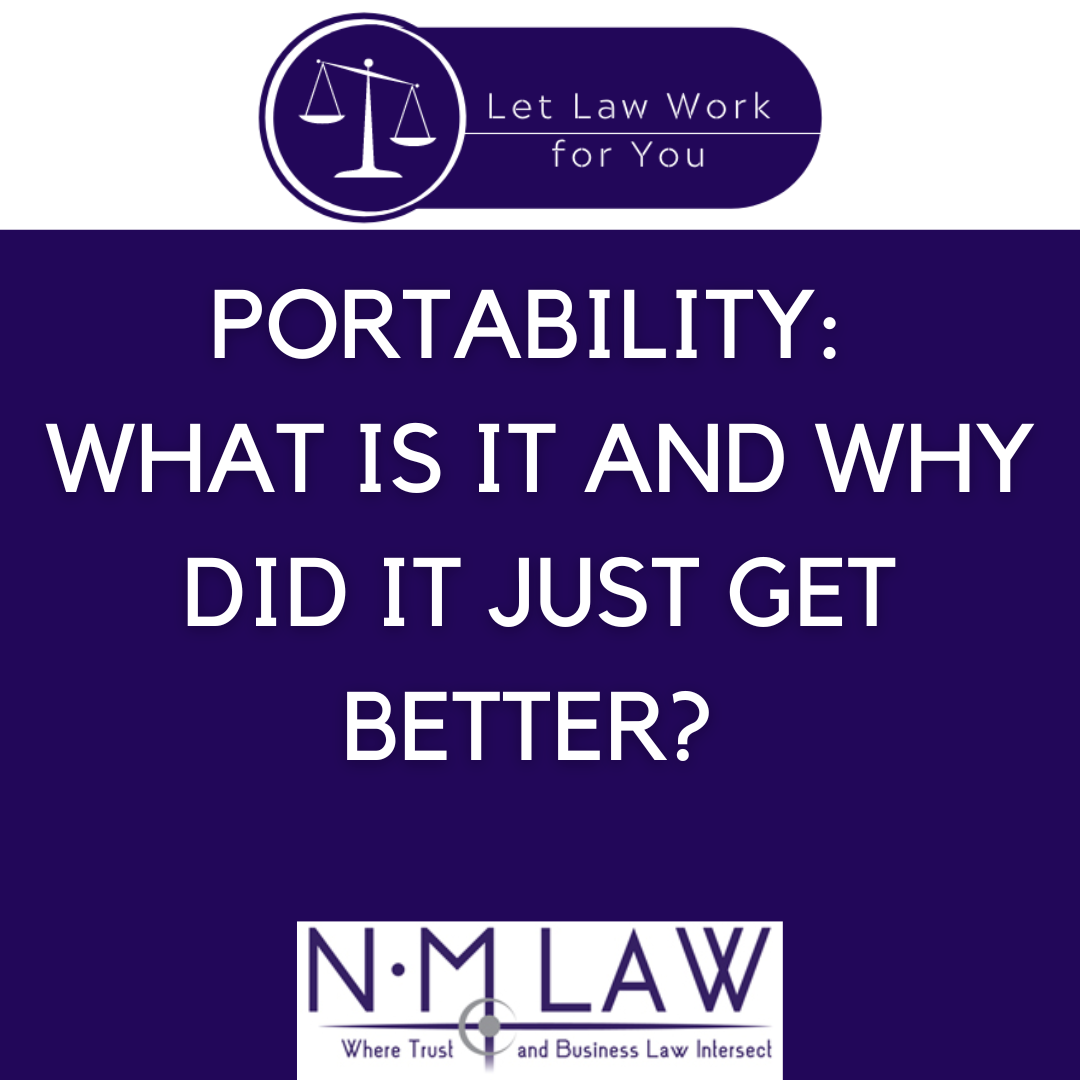
If your family has a larger estate that may be taxed at death, then this article and update in the law is important to you.
Portability is a concept that was born in 2011 when the IRS determined that a spouse could preserve the estate tax exemption amount of the deceased spouses, technically called Deceased Spouse Unused Exclusion Amount (“DSUEA”). The reason portability exists is because the federal estate tax is per individual. Without this tool, a tax designed to be levied per person could be levied twice, first at the first spouse’s death and then at the widow/widower’s death if the estate went to the spouse.
Many people failed to make this DSUE elections over the last decade since it came into being. Now the IRS allows widow and widowers more time to do so after the death of their spouse. However, a special tax return must be filed to preserve the deceases spouse’s exemption. Previously the surviving spouse had only 15 months to make this election and file the return. Then it got extended to 2 years since so many people missed the deadline.
On Jan. 1, 2026, the Trump tax plan expires, including the estate tax exemption which is currently $12,060,000 per person. The exemption will land somewhere between $3,000,000 and $6,000,000 per person, depending on whether Congress and President Biden take action, or just let the exemption default back to the 2010 numbers. Given inflation and general expected growth in anybody’s asset portfolio over time, even marital estates that are less than $10,000 should be preserving both spouses’ exemptions to ensure the family does not pay estate tax when the survivor passes. Estate tax is a 40% tax on every penny over the exemption amount so it would be penny wise and pound foolish not employ a tool that doubles the amount a family can pass on to beneficiaries on a tax-free basis.
If you are a surviving spouse, particularly if you are younger, or have growing assets, it is essential that you consult with a tax and estate planning professional to decide whether you need to file a 706 Return to preserve your spouse’s exemption. Luckily, the new IRS rule allows you up to 5 years to make this election and it is retroactive. For those who missed the prior deadline, this is a second bite at the apple.
At NM Law, we specialize in estate and estate tax planning, and we can help you ensure you do not miss opportunities to preserve your wealth and reduce your taxes. To find out more about our services, contact us here.
Testimonials
Charities We Support
We dedicate pro bono time, volunteer services, and a percentage of our gross revenue to these organizations. In 2023, we sponsored a refugee family of five to come to the United States and start a new life.
Each year our law firm decides as a group which charities to assist with our time, money, and expertise. Please feel free to click on any of the charities below and make a donation of your own.


















